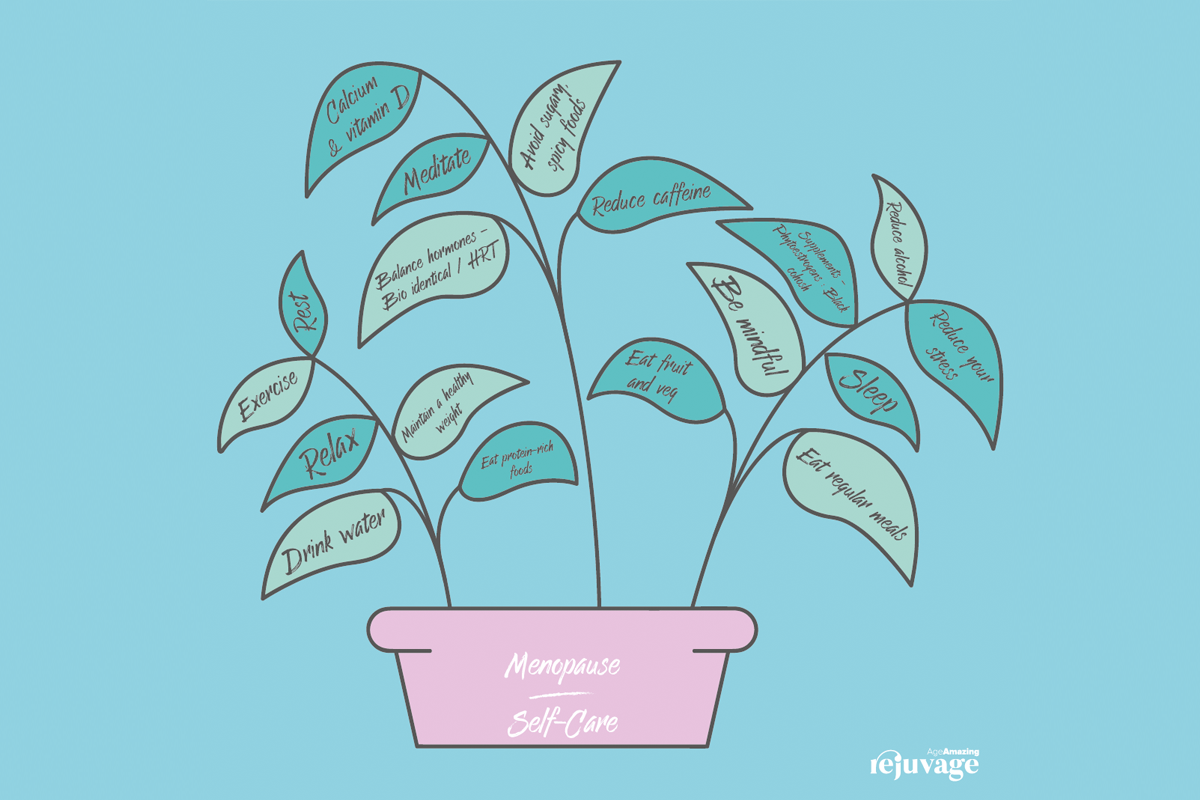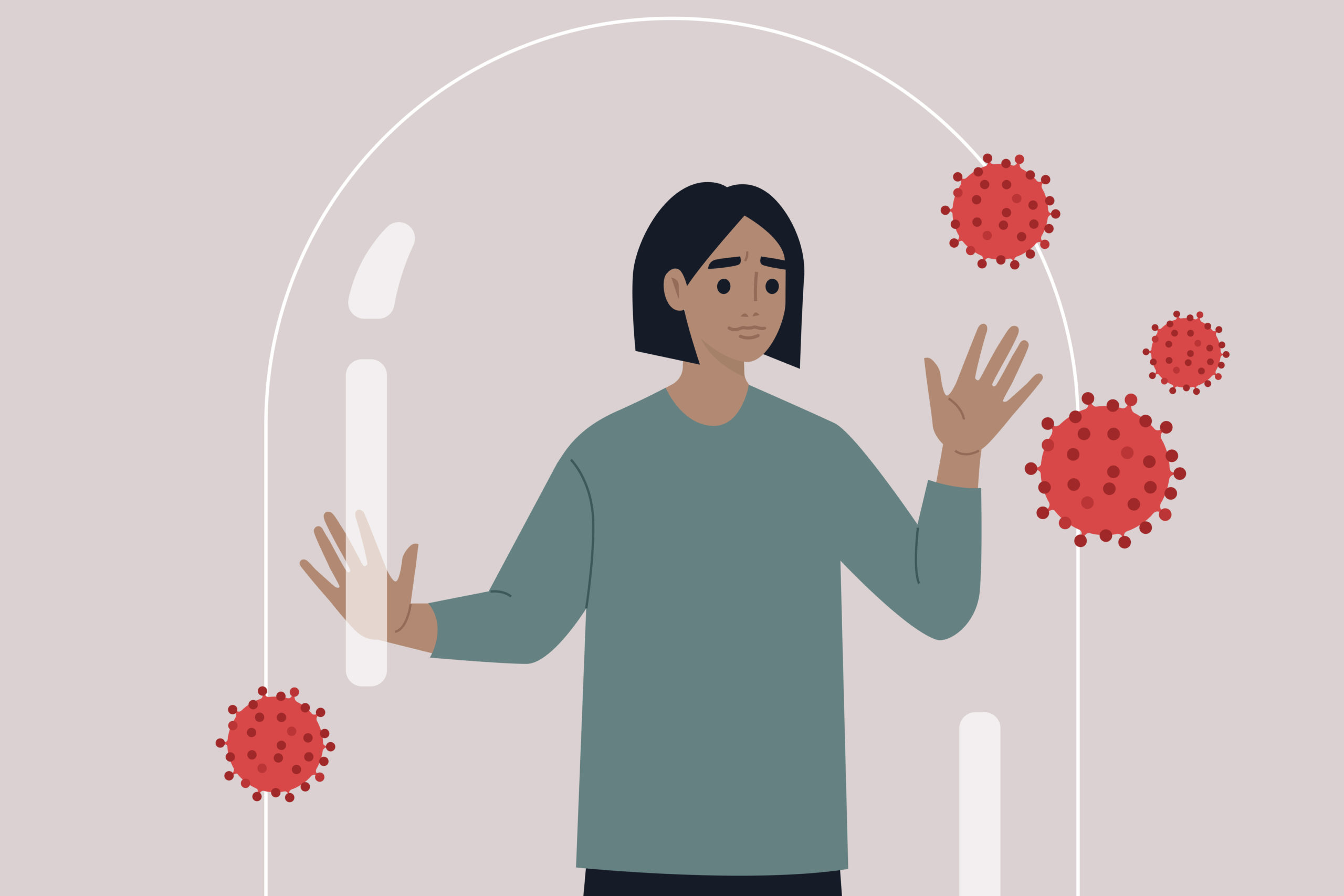The menopause can be a difficult time with all the fluctuations in hormones. It usually begins in the late 40s or early 50s for most women and can last for a few years. During this time, at least two-thirds of women experience symptoms causing changes both physically and emotionally. It can give you hot flashes, night sweats, mood swings, irritability, and make you tired or anxious.
During menopause, our bodies are changing, and it’s very important that we shift some of that focus of caretaking onto ourselves. Self-care means ensuring I make the time to have my physical, emotional, and spiritual needs met. So often as women we are so busy caring for everyone else, we forget to look after ourselves.
Take Time for You. Me Time Is so Important.
The best starting point is to be open and honest about how you feel, how are your hormones affecting you? Have you made any changes to try and adapt, or are you just surviving and in a negative mindset? This is a time for a positive mindset, that is the foundation of self-care.
So, what is Self-care? ‘Self-care is defined as taking deliberate action to improve your physical, emotional, and relational well-being. It’s not about being selfish – its about self-respect.
How You Can Help Yourself in Menopause
There is a whole range of proven self-care techniques that you can reduce and manage the menopause symptoms. Here are some useful tips which if applied over time will gradually increase your energy and improve your wellbeing.
Get Peer Support
Chatting so people with similar experiences can help you put how you are feeling in perspective an learn from others
Make Time To Relax
Stress and anxiety levels can explode, so try to make sure you relax. Whether its 10 minutes a day for meditation, a bath or a walk in the fresh air make sure you make time for calming activities.
Get Enough Sleep
Sleep is important. Switch off your phone an hour before you go to bed and sleep on cotton sheets. Get into a regular sleep routine and it will give you the energy to cope and help balance hormones.
Eat Foods Rich in Calcium and Vitamin D
Hormonal changes during menopause can cause problems with bones weakening. Foods rich in calcium and vitamin D will help make sure your bones stay strong. That includes calcium-fuelled food, dairy, some cereals, fruit juice and milk alternatives. Kate and Spinach also have lots of calcium as well as tofu beans, sardines and some other fish.
Get Some Sun
Sunlight is a great source of vitamin D. As we get older, we are less efficient at making it, so its important to get more exposure. Food sources of vitamin D are fish, eggs, cod liver oil and foods fortified with it.
Maintain a Healthy Weight
With midlife changes in hormone and lifestyle, it is easy to put on weight, especially around the waist. Being overweight is shown to increase menopause symptoms, so avoid processed foods and try healthy diets.
Eat Lots of Fruit and Vegetables
Fruits and veggies are low in calories, reduce symptoms and can help you feel full, so they’re great for weight control and bone density.
Avoid Trigger Foods and Alcohol
Very hot spicy foods, caffeine, alcohol and sugary foods can trigger hot flashes and night sweats. Try keeping a food diary to see if you have any particular triggers. If you want to have an alcoholic drink, limit it to 2 a day and have them early not just before you go to bed as alcohol can increase body temperature.
Exercise Regularly
There is so much evidence to support the benefits of regular exercise. Try to walk every day and do workout 3 times a week. Mix it up and take a look at our exercise guide for a bit of guidance. It helps alleviate poor sleep, anxiety, low mood, fatigue and weight gain. To start with you could try a gentle exercise like going for a short walk, yoga or swimming. The important thing is to pick something you enjoy doing, so you’re more likely to stick with it
Phytoestrogens
Phytoestrogens are naturally occurring plant compounds that can mimic the effects of estrogen in the body. This means they can help balance hormones. It is thought that the high intake of Phytrostrogens in countries like Japan is the reason menopausal women there don’t experience many symptoms. Foods rich in phytoestrogens include soybeans and soy products, tofu, flaxseeds, linseeds, sesame seeds and beans.
Drink More Water
During menopause, women often experience dryness due to decreases in estrogen levels. Try to Drink 8–12 glasses of water a day to reduce symptoms, bloating and help prevent weight gain.
Eat Regular Meals.
Some studies show irregular eating may make symptoms of menopause worse and can affect weight
Hormone Replacement Therapy
Taking HRT or bio-identical HRT can help you balance out your hormones. They can help coordinate everything from digestion and growth to your appetite, immune function, mood, and libido. It is best to talk to a specialist or your doctor to find the best option for you.
Natural Supplements
There are a few natural solutions to help balance hormones, although not proven. Black cohosh, flaxseed, calcium, red clover and vitamin D are some of the most popular.
Self-care is having a positive mindset, we are all different, so the best approach is to focus on looking after you and test and try different things. Focus on an overall healthy lifestyle where you rest, eat well, exercise and take supplements to help minimise the impact of the hormone changes.






